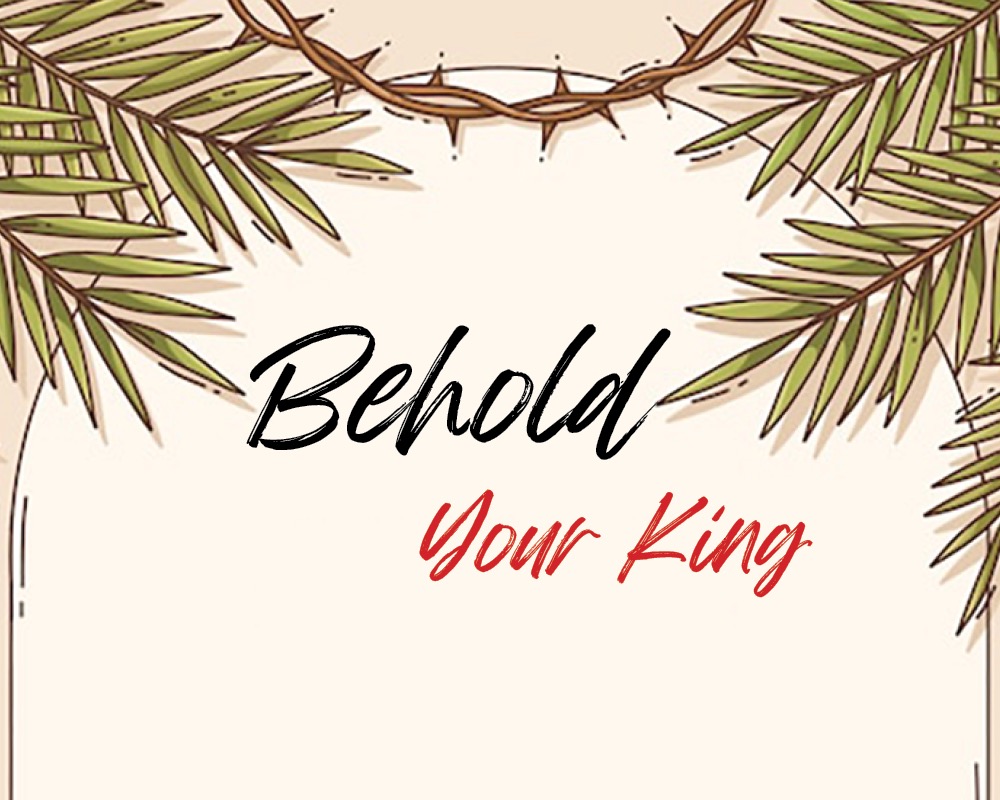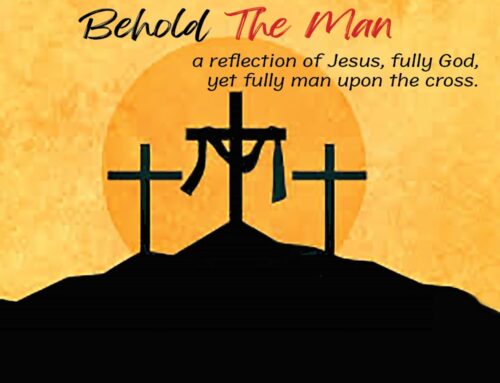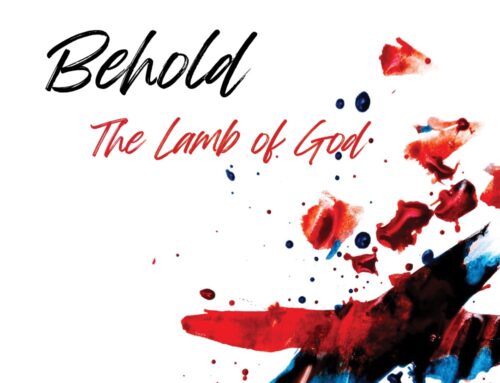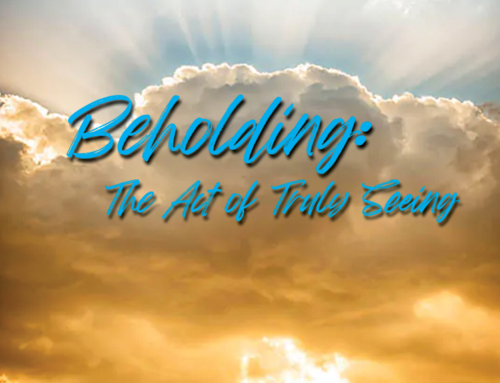Next Sunday, March 24, marks the start of Passion Week, the most significant week in the history of Christianity, beginning with Palm Sunday. On this day, Christians around the globe join together in exuberant praise in honor of Jesus’s triumphal entry into Jerusalem.
In some congregations, palm branches will wave amidst hymns of praise with declarations of hosanna. In others, the worship will reflect a more contemporary style, featuring a band and a praise ensemble of singers. And still in others the worship will be more reverent and reflective, yet just as meaningful. What is of most importance, however, is in churches everywhere Jesus will be remembered, honored and celebrated, and rightly so. Like many of you, I too am looking forward to this uplifting service at the onset of Easter week as I do every year. At the same time I am led to wonder if it’s possible to get so caught up in the excitement of the day, much like the crowd in Jerusalem 2,000 years ago, that we lose sight of the incredible significance of this event.
The Triumphal Entry in the Gospels
The narrative of Jesus’s triumphal entry into Jerusalem is recorded in all four gospels, which makes sense as this was indeed a significant event in the timeline of the Messiah. The synoptic gospels (Matthew, Mark, and Luke) are nearly identical in their retelling of this occurrence with only minor incidental variations. John’s gospel tells the same story, yet includes some additional information, while omitting other, non-essential details. Regardless of minor variations, all four narratives clearly work together in presenting one complete, unified story. In my personal desire to glean a deeper understanding into the magnitude of this eventful day, I re-read all four accounts with careful attention to detail. While I can’t say I gleaned anything new in regard to facts, I can assuredly say I was newly inspired with the realization that God’s predetermined plan became a visual reality on this day, beginning with Jesus’s decisive action to walk into Jerusalem.
The Walk to Jerusalem
All the gospel accounts record Jesus purposefully walking towards Jerusalem. This may seem inconsequential, but to me it is a major detail in this narrative, and here’s why. You see, it would be one thing to travel to an event, in Jesus’s case walk, in the hopes of being blessed, edified, and encouraged. But it’s an altogether completely different scenario to trek faithfully forward into what you already know will be a semi-farce with many people applauding and cheering you, yet not loving or believing in you. And further not to mention choosing to walk intentionally and committedly forward into the final week of your life, knowing it would end with false accusation, betrayal, abandonment and crucifixion. When considering these facts, the walk is a critical piece of information revealing the heart of Jesus and the love of the Father.
The Donkey
The donkey is an interesting feature of this story. For starters, as Jesus is enroute to Jerusalem, He directs two of His disciples to go ahead of Him into a village where they are told a donkey, never ridden, will be tied to a post. The disciples are instructed to simply take the donkey, and if anyone should happen to ask why, they are to respond, “The Lord needs it.” I don’t know about you, but I just can’t rush past this detail. This is so Jesus. He speaks with authority and His will is accomplished. However, the disciples “borrowing” the donkey without prior permission, although worth noting, is not actually integral to the role the donkey plays in this narrative.
So then why a donkey? Was Jesus growing weary of the long walk? Did He think entering the city by way of a donkey could potentially impress a crowd? Was He endeavoring to present Himself as a king? The answers are no, no, and no. There are actually two major reasons Jesus chose a donkey as a means of transportation into Jerusalem. First, in the ancient Middle Eastern world, leaders rode horses if they rode to war, but donkeys if they came in peace. And Jesus, who was, and is the embodiment of peace, entered the city in a spirit of humility, not to invoke an uprising, but rather to usher in the shalom of God. The second reason is equally if not more important, as the donkey played a critical role in the fulfillment of prophecy. You see, 500 years before the two unnamed disciples were told to locate and take the donkey to Jesus, the prophet Zechariah spoke these words, “…Behold, your King is coming to you; He is just and having salvation, lowly and riding on a donkey, a colt, the foal of a donkey.” (Zechariah 9:9 NKJV).
The reality of God’s Word made visible and tangible on this momentous day should fill us with renewed awe, wonder, and hope. The fact is God’s Word never returns to Him empty or void; instead, it always accomplishes what it was sent to do which is to fulfill the purpose for which it was sent (Isaiah 55:11). So when we sing songs to King Jesus on Palm Sunday, and every day for that matter, we should be filled with great gratitude, remembering that God always keeps His promises, and His Word never fails!
The Timing and the Attendees
First, the timing…Everything God executes He does with excellence. So, when He orchestrates an event, it’s no small matter, and Jesus’s triumphal entry is a prime example of this. The fact is Jesus’s arrival into Jerusalem was not at some random, happenstance time. No, instead He made His entrance into the Holy City during the Passover celebration, which means the city would have been packed with people and indeed it was! The timing of this event was clearly ordained by God, setting the stage for the Messiah’s final week of life and the greatest miracle the world had ever seen.
Next the attendees…There were three distinct people groups that attended this divinely staged event. First, there was the crowd. The crowd was a mix of many people. Some were there simply because it was Passover and they were drawn to the large gathering in the city. Next, in the crowd were people who were followers, but more like groupies in the sense that they had become fans of Jesus’s teachings and were intrigued by His miracles, the most recent being that of raising Lazarus from death to life. Also in the crowd were the threatened, controlling, fearful, ever-zealous religious leaders. And lastly, there were the true followers of Jesus–His disciples and others who were committed to His mission. These are the distinct classifications regarding the crowd, but here’s what’s vitally important to understand about these people:
- First, every person present was created in the image of God.
- Next, every person present was loved by God.
- And finally, every person present was a soul Jesus came to save.
And this, my friends is what Palm Sunday is all about.
We Remember
In closing, on Palm Sunday we remember:
- Jesus’s triumphal entry into Jerusalem marked the beginning of His Passion week and the final week of His life.
- The crowd who welcomed and celebrated Jesus would sadly soon betray and condemn Him to death.
- That this eventful and yes, joyous memorial would lead to Jesus’s betrayal, conviction, crucifixion, and ultimately to His glorious resurrection from the grave!
God bless you, my friend!
I pray you will be blessed with a fresh revelation of God’s amazing love for you, as you behold King Jesus this Palm Sunday!
Extend grace to others! If you’ve been encouraged, strengthened, or edified by this week’s post, please consider sharing Grace Notes For You with a friend.
Reflect
What aspect of Jesus’s Triumphal entry into Jerusalem encourages you the most and why?
In what ways have you been newly inspired to behold Jesus as the one true King this Palm Sunday?
Encourage
Share your response to this discussion question below with others this week HERE.
How do you think it was possible for the crowd who hailed Jesus as King to condemn Him to death in the same week?
Pray
Holy Father, we are in awe of your extravagant love, mercy, and grace. On Palm Sunday we remember that You sent Jesus, the King of Heaven, to forgive us, redeem us, and pay the high penalty for our sin by dying on a cross. There aren’t enough beautiful and praise-filled words to express our gratitude. So, with the best that we have, and with all that we are, we say Thank You to you; our wonderful, perfect, and awesome God. Amen!






Thank you, Carol, for your encouragement in the word. Rev 7:9 is also now a favorite of mine on Palm Sunday. ” For we will be clothed in white robes with palm branches”…worshipping …Salvation belongs to our God!!!!
Much love in Christ,
Jan -Tracey’s friend 🙏